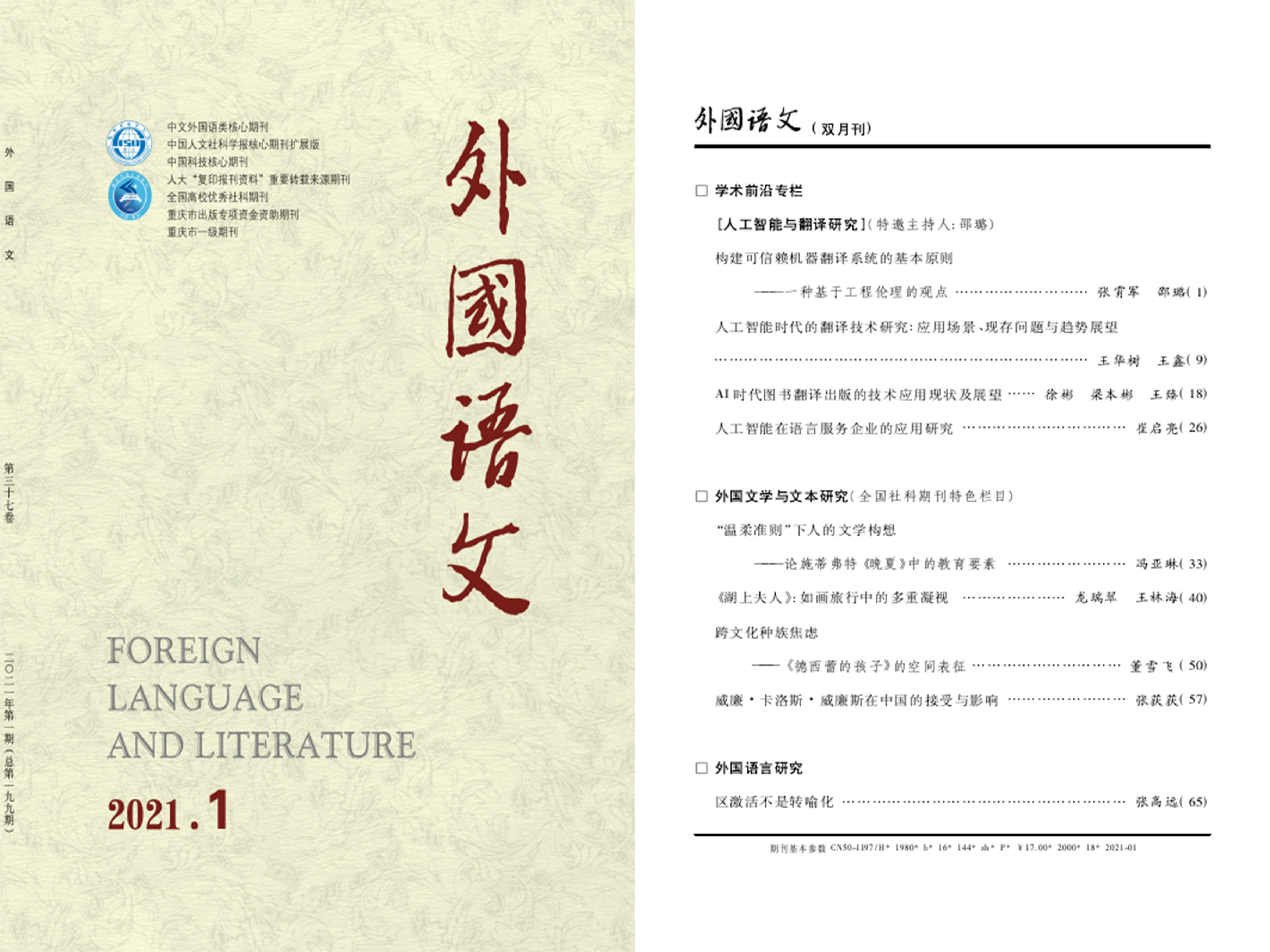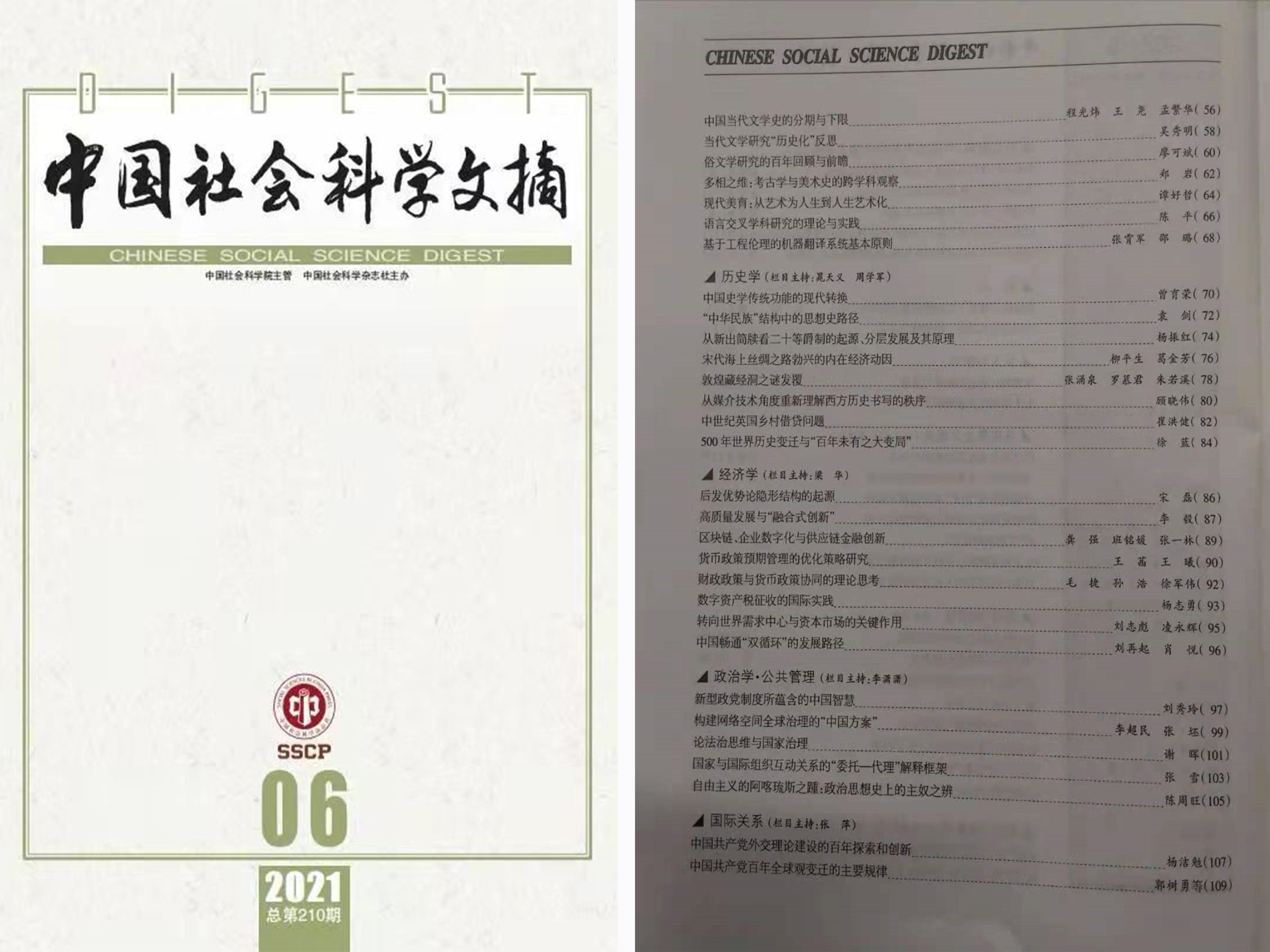16 Sep 2021
The increasing number of ATM machines leads to the reduction of bank officers; the iterative upgrading of machines explains the disappearance of basic labour. It cannot be truer that the development of technology brings about social progress. What about translation industry? The proliferation of translation software has forced translation related programmes to concern the future of translators, interpreters and terminologists.
“It is irresponsible to make a soly choice from human translation or machine translation at this stage.” Dr Xiaojun Zhang, from the Department of Translation and Interpreting of School of Humanities and Social Sciences, says.
The recent research paper ‘Seven Principles to Construct the Reliable Machine Translation System’ published on Foreign Language and Literature, mentions the significance of clarifying the technical ethics of machine translation, “without a clear framework of technical ethics of machine translation, any assertions related to the future of human translation are not reliable.”

Technical ethical issues are important in protecting human safety, human privacy and system security in machine translation R&D, including institutionalization, technical responsibility and liability, and engineering activities and social policy.
With regards to what kind of professional behavior is expected and trusted by the society for machine translation, Dr Zhang proposes seven principles for building reliable machine translation systems based on the technical code of ethics released by Google and the European Commission: human centricity, robustness, confidentiality, explicability, fairness, replicability, and sustainability.
“Human translation and machine translation can mutually benefit each other through collaborating. The artificial intelligence (AI) should act as a supportive role rather than limiting human autonomy.” Dr Zhang suggests, “And to add on, the development of machine translation shouldn’t achieve free code-switching directly and independently from humans.”
Robustness requires algorithms to be reliable and to minimize the errors and inconsistencies within the AI system. “The inaccurate translation brought by vulnerable translation system can threaten human lives once it has been hacked while robustness can help assess and mitigate potential risks through requiring supervision from human translators.”
Despite of the human-machine collaboration, the integrity of the machine translation system needs to be safe as well. Dr Zhang suggests that the system must ensure privacy and protect users’ data; moreover, the data collected by the developer needs to be desensitized if it contains biased and inappropriate information.
“Ensuring the integrity and traceability of users’ data can help provide reasonable explanation of a particular way of translation when the translation outputs have been disputed.” Dr Zhang says.
“This is the key of explicability, to explain the technical process of machine translation and to make sure the translated text is understandable.”
With regards to the fairness principle, Dr Zhang explains that the majority of machine translation systems can be user-centric, in a way that allows people to use the services and products equally regardless of age, gender, and ability which, at the same time, gives extra credit to the importance of the assistive functions for the disables.”
“Human-machine collaboration also requires the expert to explain the machine’s operation and disclose the development procedure for the convenience of other developers.”
To avoid uncontrolled situations, machine translation system must be replicable and reliable. According to Dr Zhang, the international reviews including an evaluation of the research algorithms, data and design process, and a reproduction of the research results would be accepted.
In the paper, he also points out the fact that intelligent machine translation system is both equitable and sustainable: “AI system should not only takes into account multiple factors with regards to the user ability to achieve a balanced user groups, but also take on the responsibility of enhancing a sustainable ecosystem that brings positive influence on social development.”
“Being in an era where technology is booming, the first step is developing, and then to contain it. How to contain it? This is where the ethical regulation and restraint play their roles.” The issues brought by AI have been discussed widely across academia and the whole society while Dr Zhang’s paper setting a precedent for “legislating” the development and application of machine translation. The seven principles have been extracted as a detailed digest and published by the Journal of Chinese Social Sciences Digest with the title of ‘The Basic Principles for Machine Translation System Based on Technical Ethics’.

By Ying Jiang
16 Sep 2021








